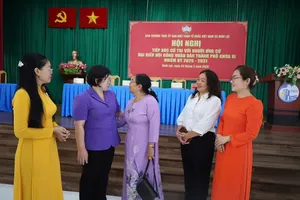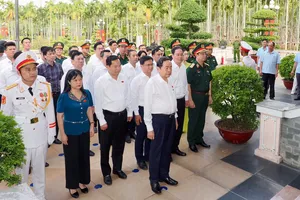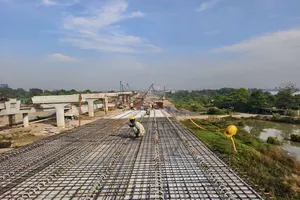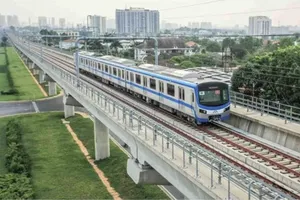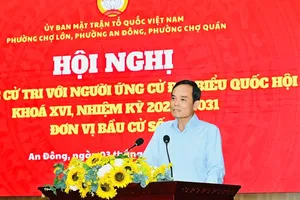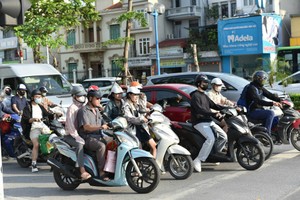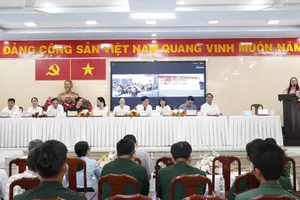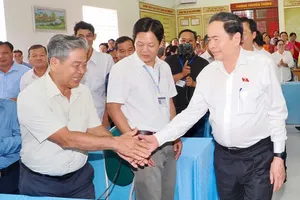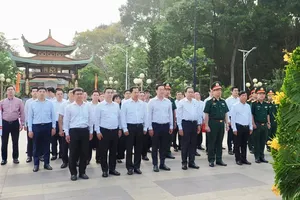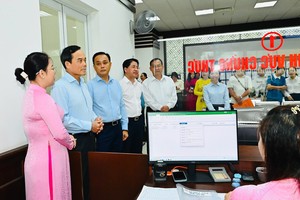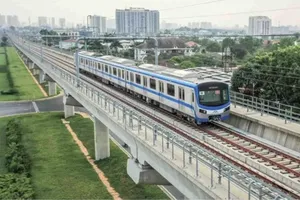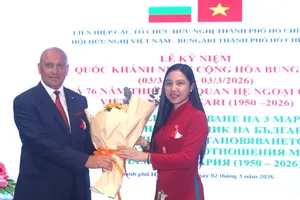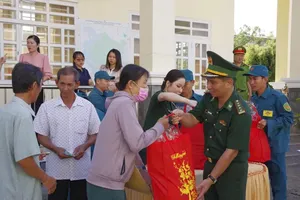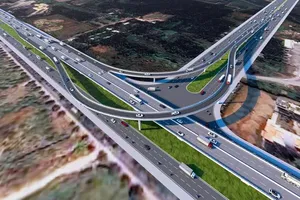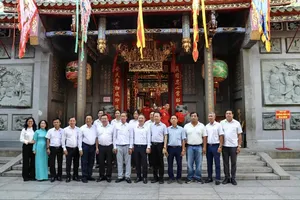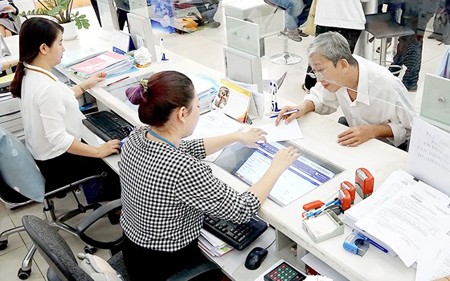
A breakthrough in administrative procedures
Managing land documents has always been a daunting task due to the complexity of the origin of these lands as well as the overlapping of various legal regulations. The fact that HCMC successfully applies the model of ‘Alliance management system in processing land documents’ for 52 procedures is, therefore, considered a crucial breakthrough.
According to the HCMC Department of Information and Communications, the lack of consistency in handling steps and formal forms or software of land procedures has been the most burning issue among the Department of Natural Resources and Environment, the HCMC Office of Land Registration, and related offices in district level. In particular, there has not been any transparent information link or connection between different levels for management.
After being implemented for more than a year, the ‘Alliance management system in processing land documents’ has basically addressed the above problem. Until April 28, 2018, this system was able to receive more than 865,000 land documents from citizens. Only in April 2018, out of the 16,487 documents were received, the system could process 6,386 files on schedule (accounting for 80 percent).
This system also allows users to integrate with the digital one-stop-signature (or the digital ISO at the local office) so that citizens can monitor the status of their submitted document via SMS, email, or the city service website at dichvucong.hochiminhcitygov.vn
In the media press in the first quarter of 2018, Ms. Vo Thi Trung Trinh, Deputy Director of the HCMC Department of Information and Communications, shared that the rate of people using online public services in the 1st quarter was 49 percent. The aim of the city is that in 2020, all administrative formalities are done online at level 3 and level 4, especially those attracted the most concern of citizens.
To fulfill this goal, the city’s online payment portal is now in the experimental phase in the Department of Health, the Department of Planning and Investment. It is expected that in the second quarter of 2018, this portal will be officially used so that citizens and businesses can pay immediately after they finish administrative procedures.
It is reported that the municipal authority in HCMC has prioritized the task of simplifying and publicizing all administrative formalities. That is to say, in 2017, HCMC spent around VND1,200 billion (around $52.710 million) of its budget on the project to reform administrative procedures. The city is supposed to use another VND2,700 billion ($118.609 million) in the period between 2018-2020.
An innovative and smart city
Along with building a municipal authority to better serve its citizens, HCMC also set an target that it can ensure the economic development speed, create a knowledge-based and digital economy, effectively manage the city on the account of predicting and improving the living standards as well as working conditions, and increasingly allow citizens to participate in the management process.
Therefore, the city has carried out the project of ‘Developing HCMC into a smart city in the 2017-2020 period, with a vision towards 2025’
According to Director of the HCMC Department of Information and Communications Duong Anh Duc, depending on the demands of each local area, the piloted content might include building an operating center on traffic and public security along with corresponding database.
The results of these piloted programs will have to be integrated into the four the city's main targets which will be established later, so they must ensure the consistency with the overall plan and the technology frame of the city.
In particular, Mr. Duong Anh Duc clearly stated that the shared database and open database ecosystem would be available for all citizens as well as businesses to exploit, which is a prominent benefit of a smart city.
At the moment, the HCMC Institute for Development Studies is making a plan to build a simulation city, which is also one of the four target of the project, in order to analyze short-term and long-term forecasts on basic matters such as energy, traffic, and environment.
In 2018, the Institute will prioritize the task on creating database, statistics regarding economy, society, and traffic.
The orientation of Politburo member, HCMC Party Committee Secretary Nguyen Thien Nhan also states that the city must form an innovative urban area based on the connection between the High-tech area in District 9, HCMC National University in Thu Duc District, and the administrative center in District 2.
This will be the model of a high-tech, multi-functional, and smart urban area for scientific research, human resources training, and especially for forming a new favorable ecosystem to boost the innovative start-up activities and to exploit the potential of young intellectuals to the highest.
According to Vice Chairman of the HCMC People’s Committee and Deputy Head of the project’s management board, recently, related bodies have been directed to perfect and submit the implementation plan of the smart city project in 2018. This year will be the foundation to form necessary technological infrastructure for the four main targets of the project. It will also be the time to synchronously pilot models and solutions for a smart city in district level.
